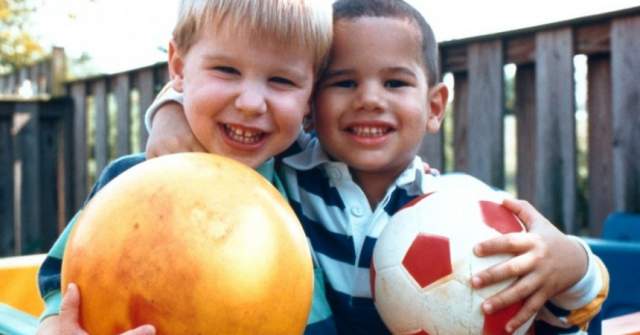Juvenile Diabetes Defined
Most people refer Juvenile diabetes to Type-1 diabetes as immune system disorder. It occurs when immune system by mistake attacks and damages healthy body tissue. Though it may occur at any age, yet most people have it during childhood or teenage years.
Juvenile diabetes is harmful syndrome with disorder of metabolic process and high glucose levels. It very much links up to lack of insulin discharge. Insulin is hormone that sends glucose into body tissues. Cells use it as fuel. Commonly, pancreas produces insulin to provide exact amount of glucose. In this case, pancreas gives nearly zero insulin, or the cells do not react to the one.
Many people refer Juvenile diabetes to “insulin dependent diabetes.” Without it, glucose levels will increase. It will cause lots of health problems linked to some organs like heart, eyes, kidneys, and nerves. For that reason, children with the disease may depend on exact amount of insulin.
Therefore, we should detect it early to prevent it before time. First, you must figure out how the disease functions and keep intense upsurge of emotion under control. Even so, we can start a basic lifestyle changes. It will not only uphold child’s health, but also boosting value of living.
- See Also : Banana nutrition health benefits
Risk Factors of Juvenile Diabetes
Doctors have not known what factor that directs to Juvenile diabetes. Below are risk factors or causes that lead to the disease.
- The main cause relates to the hormone insulin. It occurs when pancreas is not able to produce it.
- Specific genes point out an increased risk. Scientists linked several gene mutations to higher risk of Juvenile diabetes. Not everyone with the disease carries it. However, many people with this condition have one or more of these factors.
- Lifestyle and family heritage could be one trigger. It will be hard to split them from the health risk. Choice of lifestyle tends to keep running in the family. Parents with unhealthy eating habits are liable to pass them onto their children. Children can also inherit risk factors from their parents who suffer from the disease.
- Lack of vitamin D is one symptom.Even without symptoms, it can lead to health risks. Be aware if you avoid the sun, having allergies, or sticking to a strict diet
- Pregnancy of older mother or other harmful condition in pregnancy will increase more risks.
- Other concern might be early viral infections. Virus with modest effects on most people may set off juvenile diabetes in others.
- Other diet plan factors are one of risk factor. Early diet plan may also be part of the cause. Juvenile diabetes rarely afflicts people who were breastfed and those who firstly eat solid foods at later ages.
- Immune system disorder is other risk factors. For some people, juvenile diabetes seems to take many years. In line with many researches, most people who later suffer from the disease had immune system disorder so many years before.
- One cause may also relate to cold weather. Juvenile diabetes often develops in cold climates places.

Symptoms of Juvenile Diabetes
Juvenile diabetes increases more quickly that sometimes can take years. If we can be aware of the symptoms directly, thus we can treat it very early. Below are most evident symptoms that can help children with the disease.
- Major symptom is intense hunger and craving for more foods than usual.
- Children will drink more water than usual. In this case, they will feel increased thirst at higher levels.
- Extreme basic symptom is that they often urinate.
- Losing weight quickly, regardless of the fact whether your child is obese or having normal weight. Once your child drops pounds swiftly, this is one of clear symptom.
- Mostly they will have bad breath odor.
- Children are normally active and cheerful. Be aware if your child suddenly feels tired and weary all day.
- Most risky symptom is blurry vision or other distortions.
- They may seem moody or bad-tempered all of sudden. There are surge of emotion, confused, and annoyed with no reason. They refrain from getting along with his friends or family. Mostly they will prefer to spend their time all by themselves.
- There are also other major symptoms, like distress, slurred speech, unconscious state, cold sweats, shaking, heavy breathing, dry skin/mouth, flushed face, nausea, or stomach pain.
In case your children have one or more of these symptoms, you should get them checked out.
Juvenile Diabetes Treatments
If you have children with juvenile diabetes, you need to:
- Work with doctor and health care team to deal with the disease. Be aware of any signs of other health problems.
- Check glucose levels couple of times each day by doing small blood test.
- Remind your child to take insulin as prescribed daily at proper times. You can use insulin by injections, pen needles, pump, or other devices. Take care of their treatment to balance with meals and daily work out.
- Help your child to follow balanced and healthy diet plan. Be alert for the amounts of sugars and starches in their meals.
- Support your child to remain active. Get routine workout to control glucose levels and avoid long-term health problems.
Coping with Juvenile diabetes is somewhat very hard. The fact is taking care of the disease requires following very tiring treatment with strict caution. Certainly, it is something of which most children despise. Despite physical effects from the disease, children often stumble upon surge of emotion for being “distinct” from their peers.
Juvenile diabetes is not type of curable disease. By intensive care, however, we can reduce its worst result. Nonetheless, treating Juvenile diabetes may be stressful for you and your kid. Just keep in mind. It will not keep them from having typical, complete, and cheerful life. Keep Healthy Living 🙂
